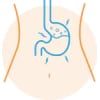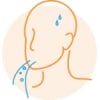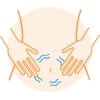This section is intended to help you understand how to manage some of the most common side effects of Adempas.
Please note: this section does not take the place of talking with your healthcare provider about your condition or your prescribed treatment. If you have any questions about Adempas, be sure to ask your doctor, nurse, or pharmacist.
Before you start Adempas, tell your doctor about all the medicines you take, including prescription medicines, over-the-counter medicines, vitamins, and herbal supplements. Tell your doctor if you have any side effect that bothers you or does not go away. Adempas and other medicines may affect each other and cause side effects. These are not all the possible side effects of Adempas.
Do not start any new medicine until you check with your doctor.
The most common side effects of Adempas are headache, dizziness, indigestion, swelling of your hands, legs, feet, and ankles (peripheral edema), nausea, diarrhea, and vomiting.
Tell your doctor if you have any side effect that bothers you or that does not go away. These are not all the possible side effects of Adempas.
Call your doctor for medical advice about side effects. You may report side effects to FDA at 1-800-FDA-1088.
Get professional nurse support.
Learn about Aim Nursing Support here.












